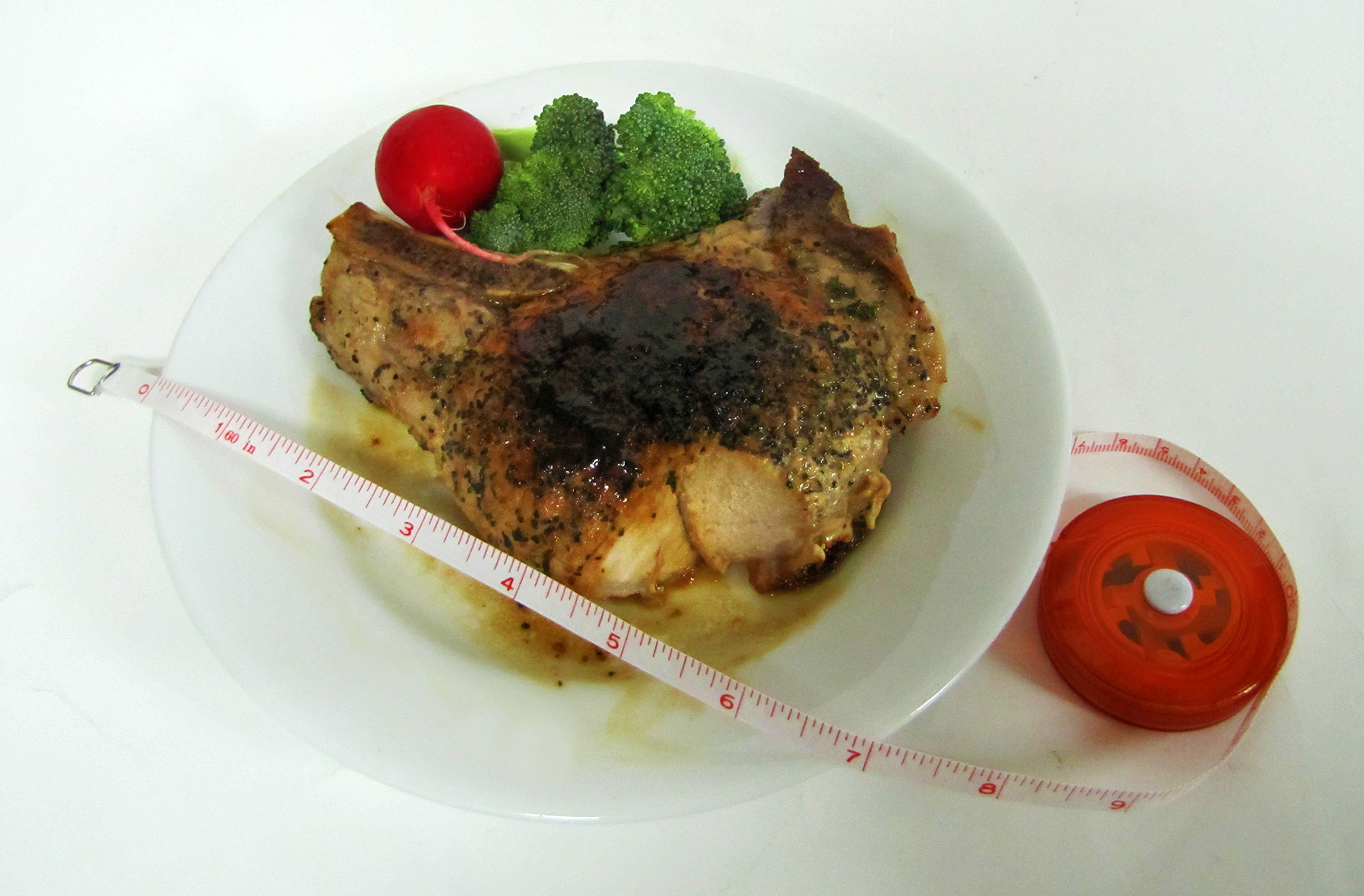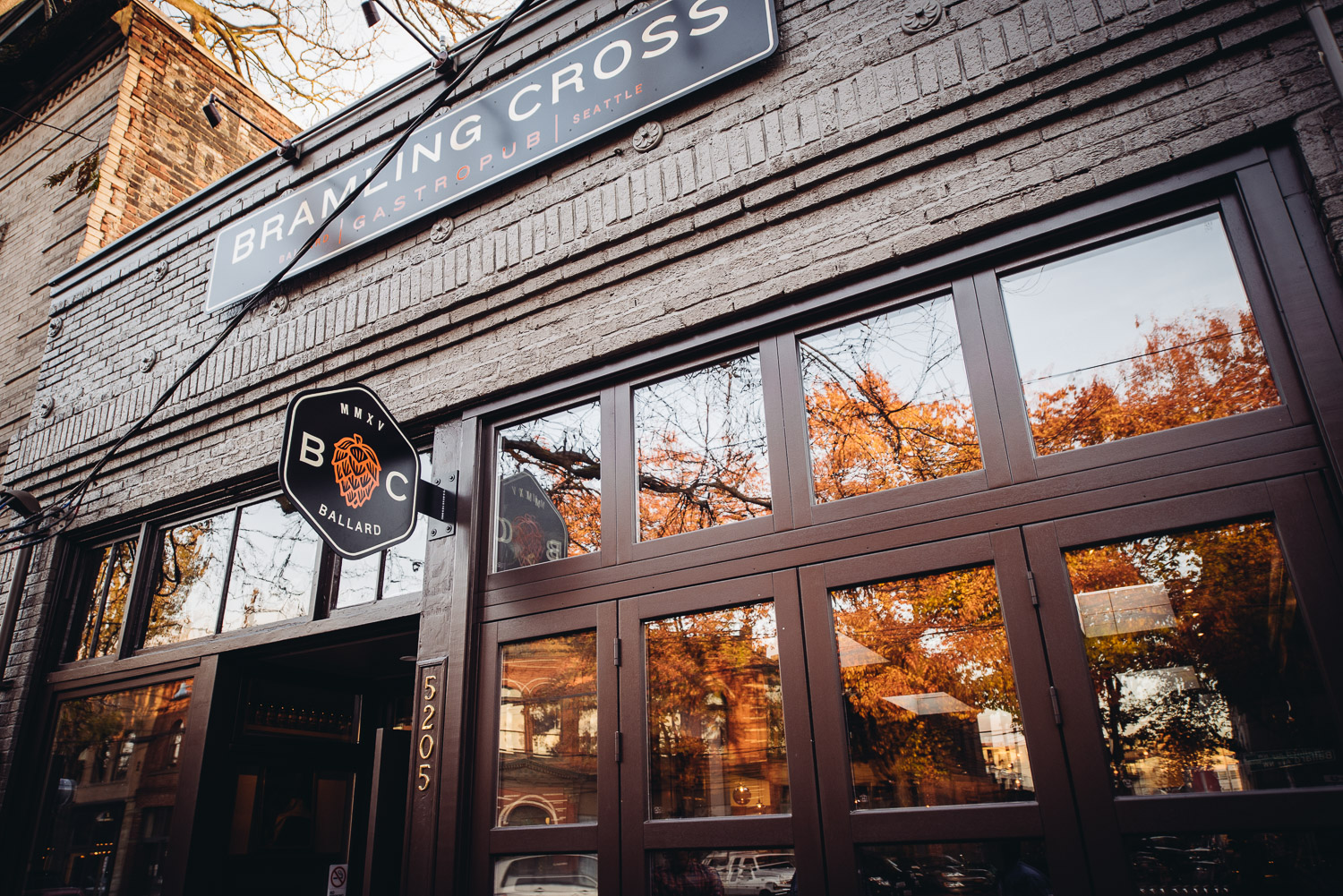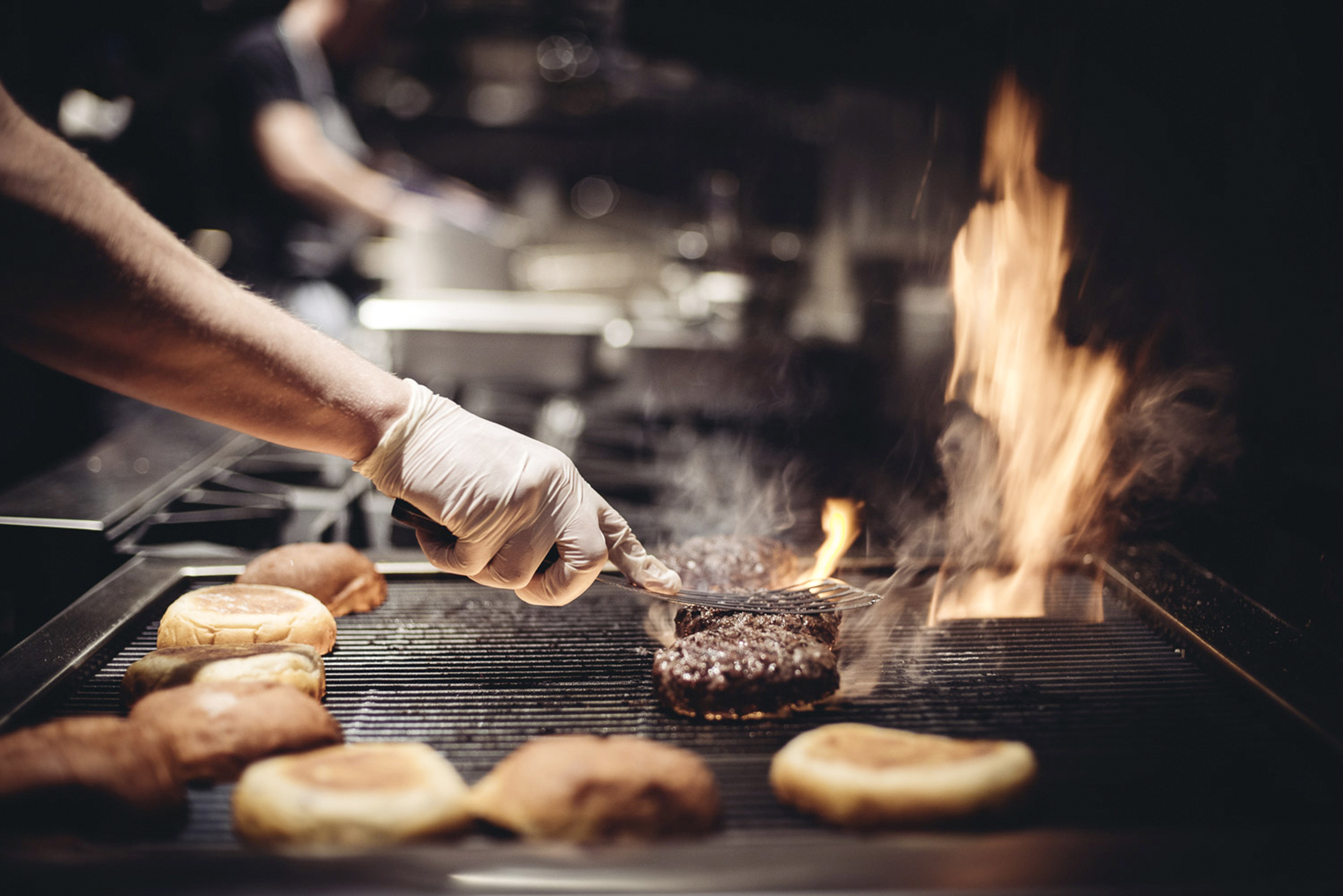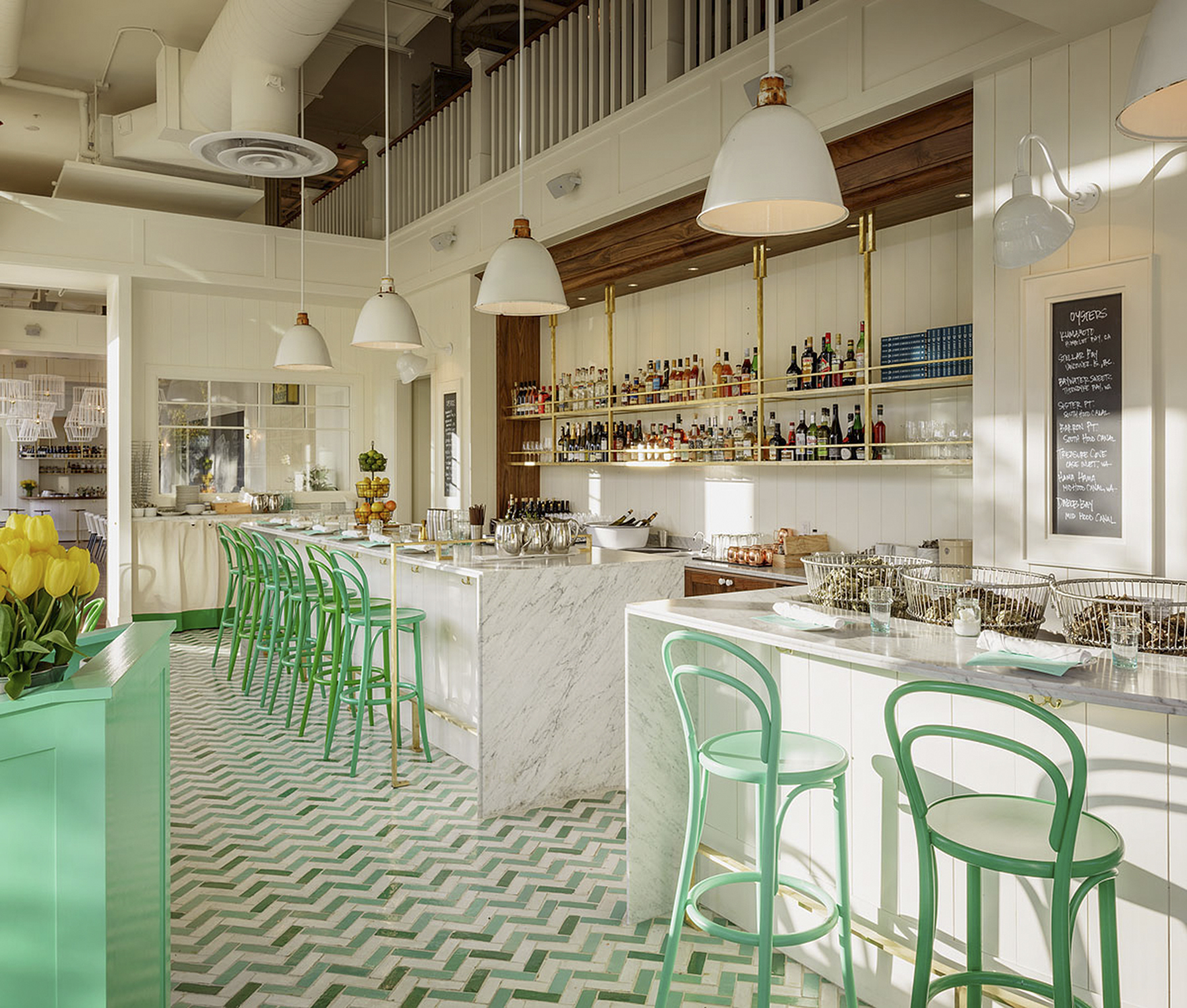Sooner or later, depending on how long it takes to get a reservation, you’ll end up having a bad time at what is supposed to be a good restaurant. When that happens, you might be startled by how upset you become. It probably won’t be the food that’s to blame.” So wrote renowned food critic Alan Richman in a 2011 GQ article, “Diner for Schmucks,” after having a particularly bad service experience.
I returned to this story by Richman, under whom I studied at the French Culinary Institute, because I just had my own all-time worst restaurant encounter. Before I hadn’t quite grasped his thesis, but now his words resonated. My parents were in town recently, and I wanted to treat them to a great Seattle restaurant—somewhere memorable, beloved by a city that makes great food. I chose a currently popular, relatively new place that served a style of cuisine my parents love.
After our entrees arrived, my partner took a bite of his pork chop and got a puzzled look on his face. “What’s wrong?” I asked him. “This is really salty,” he said. “Can you taste it?” I took a bite and grimaced. My mom and dad each took a bite. The verdict: way oversalted. Inedible. We hailed the waitress. She was extremely apologetic and asked if we’d like another. At this point it was pretty late, and we weren’t up for the 20-minute pork-chop prep time again. We declined dessert.
When the check came, we were surprised to see the $22 chop on the bill—especially considering we’d had only four bites of it and didn’t accept another one or any other entree. An innocent mistake, I thought. When the waitress came back and we pointed it out, she apologized and said she’d get a manager. At least 10 minutes later, the restaurant’s owner came to our table, presumably to apologize and ask if he could get us a free dessert or drinks. (I’d never met him before and was happy to see him; he didn’t know I was the food editor at Seattle Weekly.)
Instead he said, “I heard you had a problem with the pork chop.” My stepfather politely explained to him that the pork chop had just been too salty to enjoy. What came out of the owner’s mouth next shocked us all: “Well, by the time it got to me it was three-quarters eaten,” he stated in an accusatory tone.
My stepfather, one of the friendliest, least confrontational people I know, understandably took offense: “We ate four bites of it.”
“I’m just telling you what I saw,” the owner shot back.
“Then why don’t you bring the pork chop back out and we’ll measure it?” my stepfather retorted.
Not possible, the owner said. “Hey, I just came out here to talk to you and find out what happened. If you guys want to take it here . . . ” he then said, implying that we were escalating.
“How do you expect me to react?” my stepfather continued. “You questioned my honor.” The owner finally said he would take it off the bill.
We all left angry and stunned. Why would an owner ever treat a well-meaning customer so terribly? We’d just spent upward of $200. The $22 pork chop didn’t really matter in the grand scheme of things. It was just the principle. But before leaving, I politely informed the owner that I was the food & drink editor at Seattle Weekly. I wanted him to know that we weren’t just some jerks trying to get a free pork chop; that I’d chosen his restaurant with care. Letting my anonymity slip, though, meant that I couldn’t return—even if I wanted to—to review the restaurant. I also realized that it would be unfair to base a review on a single isolated experience, which is why, in this recounting, I’m leaving the restaurant’s name out of it.
But I couldn’t just let it go. I wanted to know why this episode stung so much. So the next week I called the owner to hear his side of the story. He told me that the pork chop was indeed three-quarters eaten when he finally saw it, to which I asked: “What does ‘by the time I saw it’ mean exactly?”
In a nutshell, the cook who prepared it might have tried it to see how salty it was. But the owner never actually talked to the cook, nor to the waitress who would have seen firsthand how much of the chop we actually ate. “On such a busy night, it was just easier to find out what had happened by asking you guys,” he told us. So essentially, since their process had completely broken down, he’d put the burden of explaining on us—his paying customers.
After replaying the incident and our follow-up phone conversation, I still couldn’t redeem the owner’s actions. Sure, people screw up. People have bad nights, as Richman points out in his article, restaurant owners included. But this was just too egregious.
The more I thought about it, the more I understood why I was so upset about what had happened—why poor service rattles us. “You can always shrug off a tough steak, since the chef didn’t mean to disappoint you. But everyone takes poor service personally,” Richman goes on to say in his article. I realized how much we rely on our restaurant experiences to be fulfilling, not just physically but emotionally. There’s a reason the 20 percent tip has become de rigueur, and it’s not just because we’re all robotic morons afraid to look like cheapskates. It’s because we truly do find value in our exchange with the people who feed us. Hospitality is an industry, but it’s one that’s rooted in the personal and primal. It begins when our mothers consider what to ingest in their own bodies to ensure our healthy entree into the world.
Then, as we grow, we continue to be fed by our loved ones. Some of my most enduring childhood memories involve the “hospitality”—the accommodation, the generosity, the obligingness—of my family: my grandmother picking blue crabs and handing me the best chunks of back fin meat; my grandfather making breakfast every morning on vacation and keeping it warm for me, the lazy teenager, who rolled out of bed hours after everyone else had eaten. Post-college, my chef boyfriend brought me home strawberry shortcake from the restaurant he worked in as a loving midnight snack. My mother continues year after year to mail Christmas cookies (made from the same old cookie cutters we used when I was little) to me and my family—no matter that they get smashed up on the trip.
When finally we’re old enough to head out to restaurants on our own, we’ve been conditioned to expect, if not outright love, a close approximation of affection. Smiles, friendly conversation. A commitment to getting us happily fed. We’ve entered into a “relationship” that’s loaded with preconceptions and desires. Good service draws on our history and delivers us something we subconsciously craved—even if we didn’t realize it. When that relationship breaks down, it’s not just anger we’re left to feel (though certainly that’s a legitimate feeling), but flat-out hurt.
I get that this puts a whole lot of pressure on the people who cook and serve us at restaurants—probably far more than they deserve. Yet I think anyone in the food-service industry needs to think hard about what they’re entrusted with—as so many do.
Sure, we want delicious food, we want good ambience. But ultimately we also want to be treated kindly. As Julia child says in My Life in France: “The waiters carried themselves with a quiet joy, as if their entire mission in life was to make their customers feel comfortable and well tended.” While that may be taking it to a bit of an extreme, the sentiment behind it is spot-on.
Perhaps most important, though, this isn’t a diatribe about the customer always being right. The customer is often not right—or at least is exercising poor judgment. And the whole concept of “right” can be a very gray area when it comes to something like taste. Plus, servers and other restaurant staff don’t deserve to be treated poorly either. But if an amiable customer politely makes a request or expresses dissatisfaction, a restaurant should take the high road and do what they can to make them feel better—not dismiss their opinion or make accusations.
If you get bad food, it’s easier to blame it on a bad night and still feel like you want to come back and give a place a second chance. But unkind treatment sticks with you—and in this case it means I’ll never come back to this particular restaurant, because ultimately I won’t feel welcome.
Waiters, cooks, and certainly restaurateurs have a big job—one that brings with it more power over their customers than they might actually fathom. I think we assume it’s the customer—the one with the money—who has the upper hand in this dynamic. And while a customer does have power, it’s a far less meaningful kind. I unfortunately learned this the hard way. E
nsprinkle@seattleweekly.com









